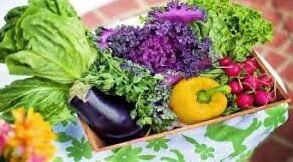Monsoon food should be comforting, nutritious and immunity-boosting to tackle the challenges of the season. Choose warm, freshly cooked food to avoid infections and improve digestion. Soups, stews and herbal teas are great options, which provide warmth and hydration. Include spices like ginger, garlic and turmeric for their antimicrobial properties. Seasonal fruits like pears and pomegranates boost immunity, while eating water-rich and leafy vegetables reduces the risk of infections. Eat roasted nuts and seeds for energy and warmth. Emphasize hygiene while preparing food to ensure safety Enjoy monsoon with delicious, healthy food.
Some vegetables and their causes, as explained by Kolkata-based dietitian and health professional Nischala Das.
Leafy vegetables (e.g. spinach, lettuce, kale): Leafy vegetables are more susceptible to bacterial contamination (such as E. coli and salmonella) due to moist conditions. The leaves can easily trap water and dirt, leading to the growth of harmful microorganisms.
Cauliflower and broccoli: These vegetables have a dense structure and many cracks, making them difficult to clean thoroughly. The moist conditions during monsoon can promote the growth of mold and bacteria in these cracks.
Brinjal: Brinjal is prone to insects and pests during the monsoon season. The moist environment can also lead to quick spoilage and mold growth.
Cabbage: Like leafy vegetables, cabbage can have dirt and bacteria between its layers. It is also prone to pest infestation during monsoon.
Okra: Okra can become slimy in the humid conditions of the monsoon season, which can lead to bacterial growth and make it less appealing to eat.
Gourds (e.g. bottle gourd, bitter gourd, ridge gourd): Gourds can absorb a lot of water, which makes them spoil quickly. They are also prone to bacterial contamination during the monsoon season.
Mushrooms: Mushrooms already have a high moisture content and in the humid monsoon environment they can easily become a breeding ground for bacteria and fungi.
To reduce the risk of contamination, it is advisable to wash vegetables thoroughly with clean water and consider using a vegetable wash or vinegar solution, cook vegetables thoroughly to kill any potential germs, and buy vegetables from reputable sources where proper hygiene is maintained.

